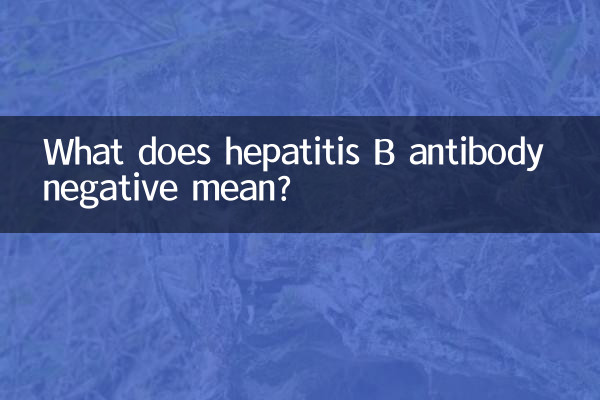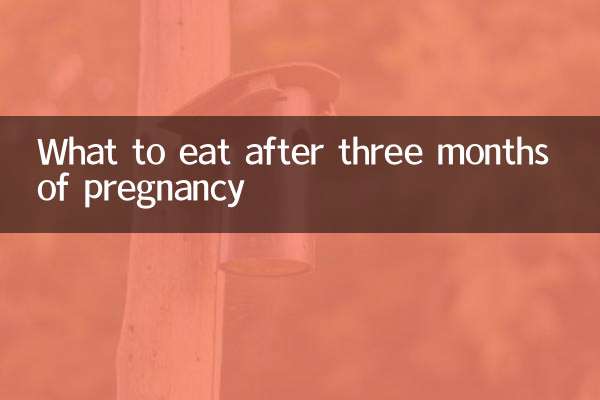What does hepatitis B antibody negative mean?
Negative hepatitis B antibody means that no specific hepatitis B antibody is detected in human blood during hepatitis B virus (HBV)-related testing. Detection of hepatitis B antibodies usually includes hepatitis B surface antibodies (anti-HBs), hepatitis B core antibodies (anti-HBc), etc. A negative result can mean different things depending on the types of antibodies tested and the individual's vaccination or infection history.
Here are some common possible meanings of a negative hepatitis B antibody:

| Antibody type | The meaning of negative results |
|---|---|
| Hepatitis B surface antibodies (anti-HBs) | 1. Not vaccinated against hepatitis B or did not produce immune response after vaccination 2. Have been infected with hepatitis B virus but have recovered, and the antibody level is low or disappears 3. Never been infected with hepatitis B virus |
| Hepatitis B core antibody (anti-HBc) | 1. Never been infected with hepatitis B virus 2. In the early stage of infection, antibodies have not yet been produced. |
Common causes of hepatitis B antibody negativity
1.not vaccinated: If you have never been vaccinated against hepatitis B, your body will not naturally produce hepatitis B surface antibodies (anti-HBs).
2.Vaccination failure: Some people may not produce enough antibodies after being vaccinated against hepatitis B vaccine, and are called "non-responders".
3.Antibody levels drop: Even if you have been vaccinated or recovered from an infection, antibody levels may decrease over time, resulting in a negative test result.
4.Immunocompromised: Certain diseases or drugs may suppress the immune system and affect the production of antibodies.
How to deal with hepatitis B antibody negative?
If the test results show negative for hepatitis B antibodies, especially negative for hepatitis B surface antibodies (anti-HBs), the following measures are recommended:
| situation | Suggestions |
|---|---|
| not vaccinated | Get the hepatitis B vaccine as soon as possible to complete the full course of immunity (usually 3 shots) |
| No antibodies after vaccination | Vaccine can be re-vaccinated or the dose increased |
| Antibody levels drop | Booster shots can be given to increase antibody levels |
| Immunocompromised | Consult your doctor to assess whether special treatment is needed |
The importance of hepatitis B antibody testing
Hepatitis B antibody testing is an important means to assess the risk and protection status of hepatitis B virus infection. A positive hepatitis B surface antibody (anti-HBs) usually indicates immunity to hepatitis B virus, while a negative one indicates susceptibility. Especially for high-risk groups (such as medical staff, family members of hepatitis B patients, etc.), it is very important to regularly test antibody levels and catch up on vaccinations.
Hot topics related to hepatitis B in the past 10 days on the Internet
| Date | hot topics | Content summary |
|---|---|---|
| 2023-10-20 | New policy on hepatitis B vaccination | Some regions have launched free hepatitis B vaccine catch-up plans, focusing on high-risk adults |
| 2023-10-18 | Misunderstandings about hepatitis B antibody testing | Experts remind: Mere detection of hepatitis B surface antigen (HBsAg) is not enough to assess immunity and needs to be combined with antibody detection |
| 2023-10-15 | New progress in hepatitis B treatment | Clinical trials of new antiviral drugs show efficacy in some refractory hepatitis B patients |
Summary
Negative hepatitis B antibody may indicate a lack of immunity to the hepatitis B virus, and measures such as vaccination or enhanced immunity need to be taken according to specific circumstances. Regular testing of antibody levels, especially in high-risk groups, is an important way to prevent hepatitis B infection. At the same time, paying attention to the latest policies and research progress related to hepatitis B will help you better protect your own health.

check the details

check the details